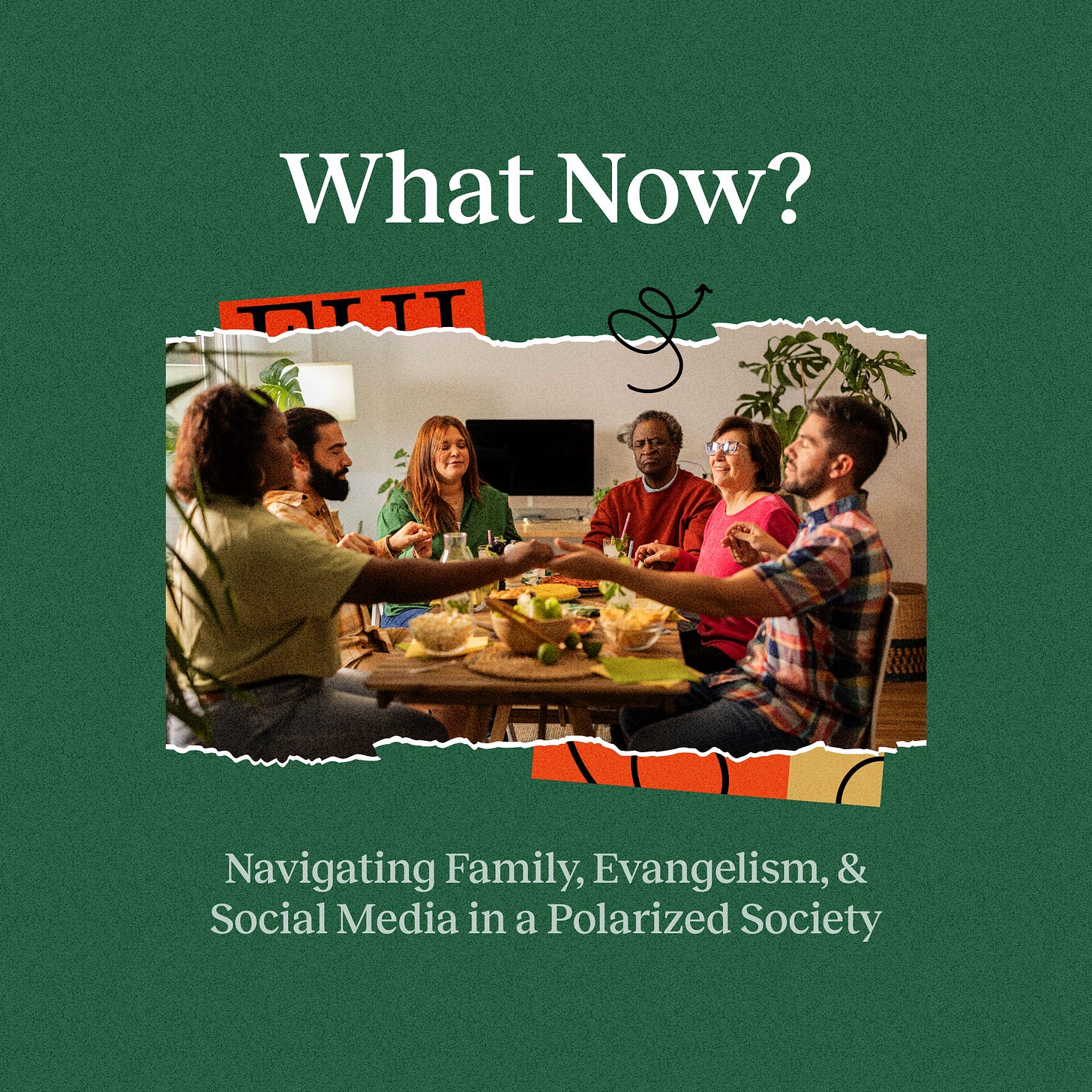anticipating holiday arguments? here is some advice.
two resources to help get through this week.
Last week, I published an essay in Sojourners about how my friends are no longer traveling home for the holidays. In an effort to prioritize their mental health and well-being, young people across the board are opting to stay home and participate in alternative Thanksgiving celebrations rather than travel home, where loud arguments and family tensions await.
I’m no stranger to these disagreements. Yet, for the past decade, I have always found a way to travel home to see family in these closing months of the year. This is a privilege—economically, emotionally, geographically—that I don’t take for granted.
My track record when it comes to disagreement is far from perfect. Family and friends who’ve seen me in these spaces can attest to this. However, I have learned a few lessons along the way that not only helped me preserve my mental health but also helped me engage well with points of disagreement and contention.
Step 1: I don’t treat conversation as an argument to win.
There is a temptation to interpret any political talk as an invitation to fight. While some comments — particularly racist and dehumanizing ones — should not go unchecked, it is helpful to distinguish between a conversation about politics and a political debate. A conversation has no audience to impress; a debate has winners and losers. A conversation can respond to a provocative remark with a question; a debate must respond with a counterargument.
I often find that conversations are far more effective than debates in revealing empty gestures and unsubstantiated arguments. This is because conspiracy theories and political extremism are great tools for shouting matches, but they crumble under the pressure of a good question. We witnessed this over the past several months as politicians evaded questions about accepting election results or whether the United States was actively participating in the genocide of Palestinians. On the debate stage, it is normal to ignore or twist a question so that you can “win” the argument in your allotted time; but at the kitchen table, there is no timer or moderators to move on to the next topic of discussion.
You can read the full Sojourners essay here.
Over the past several months, I’ve also had the honor of working with the team at Fuller Equip on a new online course that aims to help Christians engage well with our society's plurality of religions, cultures, languages, and beliefs. Where difference and diversity exist, disagreement is inevitable. This course's primary task is to help Christians lead with empathy and love amidst this reality.
While the entire course will be available in January, Fuller Equip has released a FREE, three-module version to help folks navigate this holiday season. Led by Drs.
and Matthew Kaemingk, this micro-course addresses several key questions that many of us are asking in this season:How do I broach deep differences within my family and all its complex dynamics?
How do I respectfully navigate diverse beliefs while honoring the call to evangelism?
How do I handle disagreements online?
You can download the course here.
Reading:
Rubem Alves, I Believe in the Ressurection of the Body (Wipf and Stock)
Anne Snyder, “Are We Really in Decline? Debating arcs of history and our agency within them” (Comment Magazine).
Watching:
English Teacher (Hulu)






